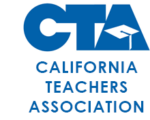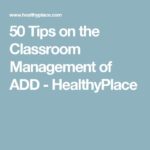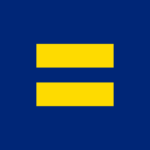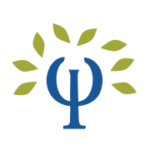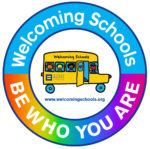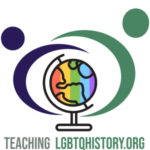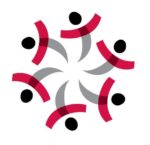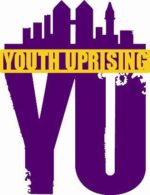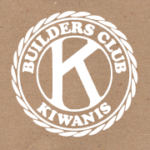Diversity & Inclusion
- ADD/ADHD (8)
- Diversity, Equality, Cultural Competency (50)
- Gender Responsiveness (14)
- Global Learning (9)
- Immigration (43)
- Inclusion/Disability Awareness (28)
- LGBTQIA2+ (38)
- Social Justice (36)
Kid Power is an interactive video platform for students in grades Kindergarten through 8th. Kid Power combines philanthropy and fun with mental health, social-emotional learning (SEL), child rights, and equity and access for all students.
This is a measurement teachers can use to see if their teaching style is culturally competent.
Suggestions for managing a classroom with ADD students.
Pronouns are the words we use to refer to ourselves and others and are an important part of our daily lives. In English, the most common personal pronouns are he/him/his and she/her/hers, which are typically used to refer to people who identify their gender (identity) as masculine or feminine, respectively. They/them/theirs is another common set of pronouns that is used by many non-binary people.
On this page you will find answers for several common questions about neopronouns as well as a table listing the conjugations of several common neopronouns.
Traumatic events do not exist in a vacuum. Like other social phenomena, they should be understood within the social and cultural context in which they occur.
HRC Foundation’s Welcoming Schools is the most comprehensive bias-based bullying prevention program in the nation to provide LGBTQ+ and gender inclusive professional development training, lesson plans, booklists and resources specifically designed for educators and youth-serving professionals. Our program uses an intersectional, anti-racist lens dedicated to actionable policies and practices. We uplift school communities with critical tools to embrace family diversity, create LGBTQ+ and gender inclusive schools, prevent bias-based bullying, and support transgender and non-binary students.
This website is dedicated to “Teaching LGBTQ History” which primarily focuses on providing resources and materials that fulfill the requirements put forth by the FAIR Education Act with regards to LGBTQ history. This site serves as a comprehensive reference hub for information regarding the FAIR Education Act, as well as for History Framework Lesson Plans and General LGBTQ Lesson Plans, and resources to support teachers as they work with the new content required by the FAIR Education Act. We are honored to work together with you to help California’s history and social sciences education be more Fair, Accurate, Inclusive and Respectful for all K-12 students.
Native Land Digital strives to create and foster conversations about the history of colonialism, Indigenous ways of knowing, and settler-Indigenous relations, through educational resources such as our map and Territory Acknowledgement Guide. We strive to go beyond old ways of talking about Indigenous people and to develop a platform where Indigenous communities can represent themselves and their histories on their own terms. In doing so, Native Land Digital creates spaces where non-Indigenous people can be invited and challenged to learn more about the lands they inhabit, the history of those lands, and how to actively be part of a better future going forward together.
We at YouthPower believe that young people are at the heart of solutions to the world’s greatest challenges. That’s why we’re dedicated to strengthening systems in communities to achieve sustainable outcomes in health, education, and political and economic empowerment. By helping young people pursue their aspirations, we empower them to contribute to, and benefit from, the creation of more peaceful and prosperous communities.
Promoting positive youth development (PYD)
YouthPower promotes a shared understanding of positive youth development (PYD) whereby young people are empowered to reach their full potential. PYD transitions away from problem-focused responses to youth crises, to proactively building skills, fostering healthy relationships, transforming systems, and making youth an active partner in development efforts.
Advancing youth development
YouthPower improves the ability of youth-led and youth-serving institutions to design, implement, and assess the programs and policies that impact young people. Using lessons from our own research and knowledge sharing, we support the scale-up of sustainable youth programs, within and across multiple sectors. We do this to equip young people to actively engage in the development of their communities.
Creating a learning network
YouthPower’s Learning Network connects youth-serving initiatives, community-based organizations, international donors, academics, and government entities engaged in improving the knowledge, skills, practices, and partnerships around positive youth development. Together we are united in our aim to support the transition of young people into healthy, productive adults.
Providing evidence, evaluation, and technical guidance
YouthPower conducts research, evaluates innovative youth programs, and disseminates information to expand the knowledge base on what does – and does not – work in youth development. By compiling and sharing resources that take an evidence-based approach, we provide practitioners and researchers with the necessary tools to continuously improve the effectiveness of youth development practices.
YU LEAD (Leadership Excellence and Development) is a one-year leadership program that prepares a team of YU members who have overcome significant challenges to become community leaders by turning their passion for community advocacy into a career. By combining intensive leadership trainings and community enhancing group projects, YU LEAD prepares youth to be change agents, while ensuring that they are fully prepared for college or full-time work.
YU LEAD represents the youth perspectives in program development and facilitation, opportunities to organize youth events, and community engagement strategies. Participants also receive extensive training to carry the voice of youth in public policy and planning processes.
There are more than 1,500 Builders Clubs in middle schools around the world. No two are alike. Each club is an independent entity-designed for its members, by its members. They work together to improve their schools and their communities. Their service also increases the visibility and enhances the reputation of both the club and the school or organization they represent. The program is designed to fit member and volunteer interests.
It’s student-led.
Builders Club is uniquely built on an important principle: Amazing things happen when the students take the lead.
It’s age-appropriate.
The program and its resources are designed specifically to help middle school students get the most of of the club experience.
Your needs matter.
Each club determines its own meeting schedule, service projects and other activities in order to fit the needs of advisors, members and sponsors.
You’re not alone.
Adult Kiwanis volunteers and staff at the regional and international levels are there to support your club’s success.
The Educational Fund to Stop Gun Violence (Ed Fund) is a 501(c)(3) affiliate organization of the Coalition to Stop Gun Violence. We use a public health and equity lens to identify and implement evidence-based policy solutions and programs to reduce gun violence in all its forms. We seek to make gun violence rare and abnormal. The Ed Fund makes communities safer by translating research into policy. We achieve this by engaging in policy development, advocacy, community and stakeholder engagement, and technical assistance.

